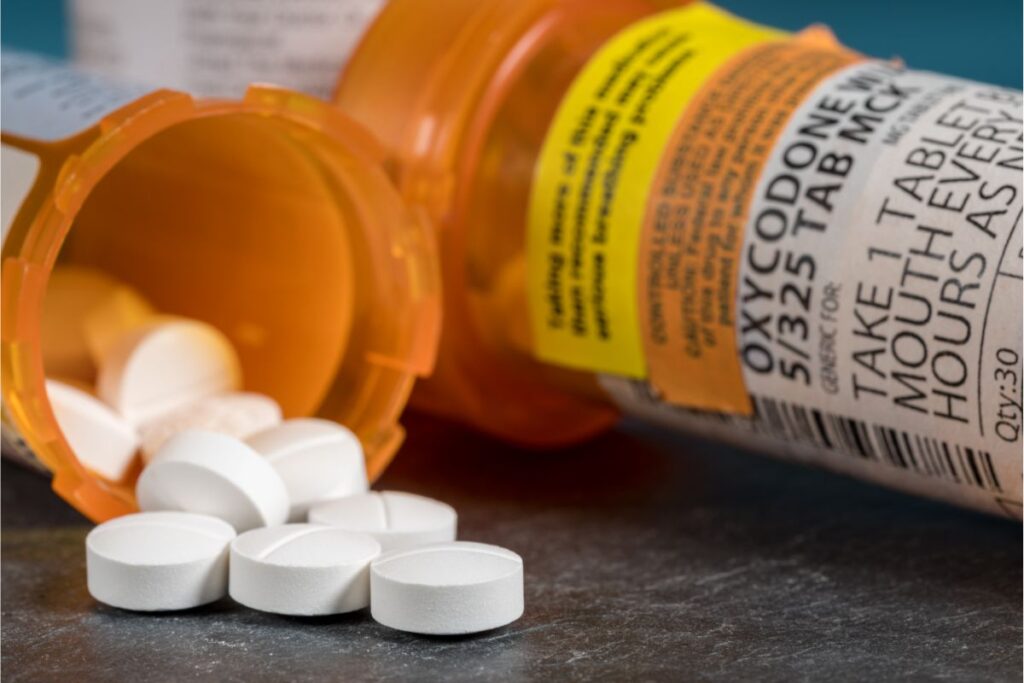Fentanyl Addiction Treatment Program in Massachusetts
Medically Reviewed

Medically reviewed by Jack Maroney, MSHCA, LADC1
Written by Lake Ave Recovery Staff
Updated on March 28, 2024
At our fentanyl addiction treatment program in Massachusetts, adults can receive the personalized care and comprehensive support that will enable them to stop using fentanyl and pursue successful, long-term recovery.
Fentanyl is an extremely powerful and highly addictive opioid (which is the same class of drugs that includes morphine, opium, heroin, and most prescription painkillers). People who need, but who don’t receive, effective treatment for fentanyl addiction are at risk for myriad catastrophic consequences, including overdose and death.
The Rise of Fentanyl
The Centers for Disease Control and Prevention (CDC) has identified the proliferation of illicit fentanyl as a major contributor to the “third wave” of the opioid overdose epidemic, which began in 2013:
- From 2013-2019, the CDC reported, the annual number of overdose deaths that involved synthetic opioids (a category that consists mainly of fentanyl) increased by 1,040%.
- By 2021, the National Institute on Drug Abuse (NIDA) reported that fentanyl and other synthetic opioids were involved in 70,601 overdose deaths in the U.S. This represented 87.8% of all opioid overdose deaths and 66.2% of all overdose deaths that year.
Today, CDC data indicates that fentanyl and other synthetic opioids are involved in more than 150 overdose deaths every day in the U.S.
You are not alone. You deserve to get help.
Lake Avenue Recovery is an industry leader in addiction treatment in Massachusetts. Our team of top medical experts specialize in dual diagnosis treatment and are committed to ensuring that each patient is treated as an individual. Call us today, we’re available 24/7.
Effects of Fentanyl
When fentanyl is used for legitimate medical purposes, it can be extremely beneficial. But when someone misuses or abuses this drug, the effects can be devastating.
The immediate physical and psychological effects of fentanyl can include:
- Extreme Relaxation
- Drowsiness
- Dizziness and lightheadedness
- Constricted (pinpoint) pupils
- Constipation
- Euphoria
- Alleviation of pain
- Confusion
- Slowed heart rate and breathing
- Heart Failure
- Sexual Dysfunction
- Ruined Relationships
- Inability to find and keep a job
- Financial Devistation
- Being arrested and jailed
- Co-occurring mental health concerns
- Addiction
- Overdose
- Death
Lake Avenue Recovery’s fentanyl rehab in Massachusetts offers a path out of the darkness of compulsive fentanyl abuse. When a person enters treatment at our center, they can protect themselves from continued harm while healing from any damage they have already incurred.
How Does Fentanyl Rehab Work?
At Lake Avenue Recovery, treatment for fentanyl addiction may involve both medication and therapy.
The medications that are incorporated into fentanyl addiction treatment can suppress withdrawal symptoms and eliminate cravings. This makes it easier for people to end their fentanyl abuse. Some people take medication for a relatively short amount of time, while others continue to do so for an extended period.
The therapeutic part of a Massachusetts fentanyl addiction treatment program is designed to help people acquire the information and develop the skills that will support long-term recovery. Examples of therapeutic services that may be included in a person’s customized treatment plan include:
- Individual psychotherapy
- Group sessions
- Family therapy
- Cognitive behavioral therapy (CBT)
- Rational-emotive therapy (RET)
- Trauma-informed therapy
- Experiential and mindfulness therapy
- Role-playing
- Partial hospitalization program (Day Treatment)
- Intensive outpatient program (IOP)
We make all treatment-related decisions — including determining which levels of care, medications, and therapies are right for our patients – on an individual basis. We encourage our patients to participate in these decisions, with the goal of empowering them to advocate on their own behalf and take ownership of their recovery.
Signs and Symptoms of Fentanyl Addiction
- Experiencing intense cravings for fentanyl
- Devoting considerable amounts of time to seeking, acquiring, and using fentanyl
- Lying or being otherwise deceptive about the amount and frequency of their fentanyl use
- Losing interest in topics or activities that used to be very important to them
- Withdrawing from family and friends
- Losing a significant amount of weight
- Using fentanyl in a manner that is especially hazardous, such as combining it with other drugs
- Trying to buy, borrow, or steal fentanyl that has been prescribed to someone else
- Needing to use larger or more potent doses of fentanyl to achieve the effects that they were previously able to attain after using much less of the substance
- Developing painful physical and psychological symptoms when they can’t acquire and use fentanyl
- Wanting to end their fentanyl use, trying to do so, but being unable to stop
Anyone who exhibits the signs and symptoms of fentanyl addiction is in grave danger. Thankfully, this disorder can be treated. When a person receives care at our fentanyl rehab in Massachusetts, they can end their substance abuse, regain control of their behaviors, and build a foundation for long-term success.
Signs of Fentanyl Overdose
One of the many dangers of fentanyl abuse is the risk of overdose. An overdose occurs when a person ingests more of a substance than their body can effectively metabolize.
Given fentanyl’s potency and the manner in which it interacts with vital areas of the central nervous system, fentanyl overdose can quickly be fatal. Signs of fentanyl overdose can include:
- Slowed heart rate and faint pulse
- Chest pain
- Shallow breathing
- Loss of consciousness
- Inability to be awakened
- Cool, clammy skin
- Bluish or purplish coloration near the lips and fingertips
It is virtually impossible to overstate the danger of fentanyl overdose. Anyone who exhibits these signs after ingesting fentanyl may be at risk for imminent death, and needs immediate medical attention.
A
What Happens During Fentanyl Withdrawal?
The intensity of fentanyl withdrawal can make it extremely difficult for a person to end their fentanyl abuse on their own.
Withdrawal symptoms occur when a person abruptly stops using the drug that they have become addicted to. In the case of fentanyl addiction, withdrawal symptoms can include the following:
- Powerful cravings for fentanyl or another opioid
- Watery eyes and runny nose
- Heightened sensitivity to light
- Abdominal cramping
- Nausea
- Vomiting and diarrhea
- Elevated body temperature
- Excessive perspiration
- Racing heart rate
- Pain in muscles and bones
- Insomnia
- Agitation
- Anxiety
- Depression
If a person tries to get through withdrawal without professional help, the physical can psychological distress they experience can quickly push them back into active fentanyl abuse. At our fentanyl rehab in Massachusetts, we do not provide detoxification. However, we can connect people with trusted detox providers in the area, where they can receive both medical and therapeutic services to keep them safe and minimize their discomfort as they complete withdrawal. Once a person finishes detox, they can then transition into one of our outpatient programs, where they can begin to make the changes that will support their successful recovery.
What Medications Can Treat Fentanyl During Rehab?
As we noted earlier on this page, medication can play a valuable role in a person’s efforts to achieve recovery from fentanyl addiction.
Methadone, buprenorphine, and naltrexone are the medications that are most commonly prescribed to people in fentanyl rehab programs.
- Methadone has been approved for use in opioid addiction treatment programs in the United States since 1973. Through the decades, it has proved to be safe and effective for both short- and long-term use.
- Buprenorphine, which was first synthesized in the 1960s, earned FDA approval for opioid addiction treatment in 2003.
- Naltrexone is used to treat alcohol use disorder (alcoholism) and opioid addiction. It was originally approved for use in the U.S. in 1984. In 2010, the FDA authorized the use of an extended-release injectable format of the medication.
The list above features the generic names of these three medications. Either alone or in combination with each other, they are marketed under several brand names, including:
- Buprenex
- Dolophine
- Methadose
- Revia
- Sublocade
- Suboxone
- Subutex
- Vivitrol
- Zubsolv
When you receive care at Lake Avenue Recovery, a member of our team will discuss your medication options with you, answer any questions you have, and recommend the medication that is right for you.
A
Begin Our Fentanyl Addiction Treatment Program in Massachusetts
If you have been seeking fentanyl rehab in Massachusetts, Lake Avenue Recovery may be the ideal place for you.
Our outpatient treatment center in Wooster is a safe and welcoming place where you can work in active collaboration with a team of skilled and compassionate professionals. These dedicated caregivers will take the time to get to know you as a unique individual, so that we can be certain we are providing you with the customized services that will best prepare you for long-term success.
When you’re ready to start living a healthier life, free from the constraints and limitations of compulsive fentanyl abuse, the Lake Avenue Recovery team is here for you. To learn more or to schedule a free assessment, please either visit our Contact Us page or call our center today.
Learn more About our Treatment Options
Oxycodone vs Oxycontin: The Differences
When it comes to managing pain, doctors often prescribe powerful medications like...
Having Chest Pain After Drinking? Here’s Why
Experiencing chest pain after drinking alcohol can be alarming and worrisome. While...
Yoga for Addiction Recovery: How Does It Help?
Addiction recovery is a challenging journey that requires a comprehensive approach to...
How Long Does Delta 8 Stay in Your System?
Delta 8 THC, a cannabinoid found in the cannabis plant, has gained...
Is Addiction A Family Disease? – All You Need to Know
Addiction is a complex and multifaceted condition that affects not only the...
Is Valium Addictive? Signs and Symptoms of Valium Addiction
Is Valium addictive? A few decades ago, it was among the most...
Instant Insurance Verification
Same-Day Clinical Assessment
Free &
Confidential
Start Your Journey to Recovery Call Now.
We have a longstanding foundation in the treatment and recovery community
Lake Avenue Recovery is a state licensed and Joint Commission accredited organization committed to promoting, maintaining, and restoring the dignity, well-being and mental health for those with substance use disorders and their families serving Massachusetts and beyond.
- 132 Years Clinical Excellence
- 105 Years Recovery Experience
- 8:1 Ratio Client to Staff
- 12 Publications on Alcohol and Drug Use






